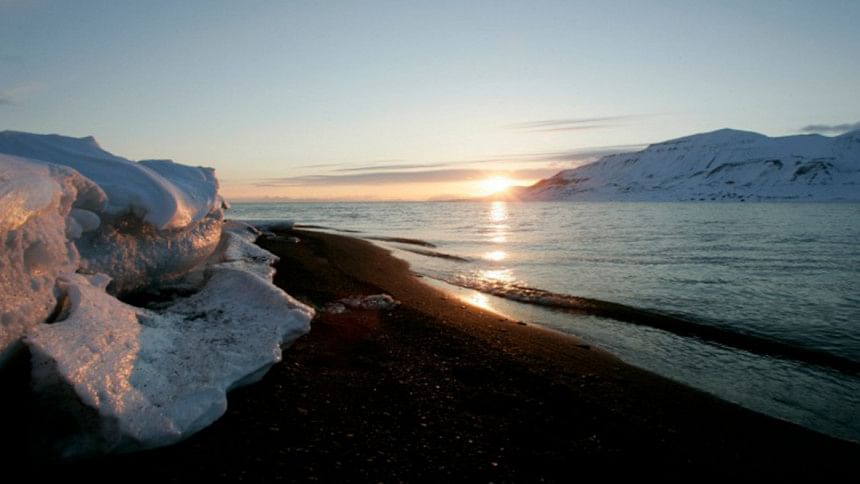How to fast for Ramadan in the Arctic, where the sun doesn't set

This week, with the start of Ramadan, Muslims from Indonesia to Michigan began fasting from sunrise to sunset in observance of one of the religions' primary holidays.
But what happens in places where the sun never sets because the country is too far north? For many, this particular dilemma is a relatively new one, only apparent over the last two years.
Since the month of Ramadan is pegged to the lunar calendar, it rotates on a yearly basis. The last time the holiday fell this deep into the summer months was nearly three decades ago in the mid 1980s, a time when few Muslim communities could be found above the Arctic Circle.
But with Muslims from Somalia, Iraq, and Pakistan -- to name a few places -- increasingly immigrating to countries like Sweden, Norway, and Finland, the ethical dilemma posed for them by the endless summer days has become very real.
For an answer to this question, I caught up with Muslim residents of Tromsø, a city located in the heart of Norway's northernmost region -- approximately 350 km (215 miles) north of the Arctic Circle.
Between late May and the end of July, the island city, which is surrounded by dramatic snow-covered mountains and fjords, experiences the phenomenon of "midnight sun."
This year, for the first time in the growing Muslim community's history, the sun will not cease shining for the majority of the Ramadan month.
In 1986, the last time Ramadan and the midnight sun overlapped so closely, the city of Tromsø barely had a Muslim population to speak of.
The establishment of a refugee center that same year encouraged the first Muslims to begin arriving, primarily from Iran.
Today, Tromsø's Muslim population numbers roughly 1,000 and consists largely of refugees from Somalia, but it also includes immigrants from elsewhere around the globe and a handful of local converts.
As Hassan Ahmed, a Muslim resident who came to the city from Somalia and works at the Islamic Center of Northern Norway told me, "the sun doesn't set. For 24 hours it's in the middle of the sky."
Faced with the impossibility of adhering to the sunrise/sunset rule, Tromsø's Muslims must find alternative ways of determining when to fast. "We have a fatwa," or clerical decree, Ahmed said. "We can correspond the fast to the closest Islamic country, or we can fast with Mecca."
Sandra Maryam Moe, a Norwegian convert to Islam and manager of Tromsø's community center and mosque, Alnor, echoed Ahmed's statement: "since we have midnight sun during Ramadan this year, we've chosen to use the timetable for Mecca." This means that if the sun rises in Mecca at 5:00 am, residents of Tromsø will begin the fast at 5 a.m. (Norwegian time).
In addition to being a good symbolic choice, adhering to Mecca's timetable, according to Moe, also provides a practical benefit: "they have very stable times for sunrise and sunset so that makes the prayers and the fasting quite balanced."
So tonight at 7:07 -- the time of the would-be-sunset -- Muslims in Tromsø will gather at Alnor's mosque, one of the northernmost in the world, and with the afternoon sun still shining through the windows, break the fast. Typically, this involves a combination of cuisines -- from traditional dates to the rich, thick bread Norway is famous for. A nightly ritual during Ramadan, Moe says the gathering is very popular. "It's full every night with people coming to join and break fast together and pray together. It's a very social time throughout Ramadan."
But though this may be the sunniest Ramadan many of Tromsø's Muslim's have experienced, it won't in actuality be the first time they've had to get creative with scheduling. In the winter, they have the opposite problem.
Moe says they prefer to just stick to the Saudi schedule year round. "In wintertime we have polar nights, so it's the same problem here. There's no sunrise."

 For all latest news, follow The Daily Star's Google News channel.
For all latest news, follow The Daily Star's Google News channel. 



Comments